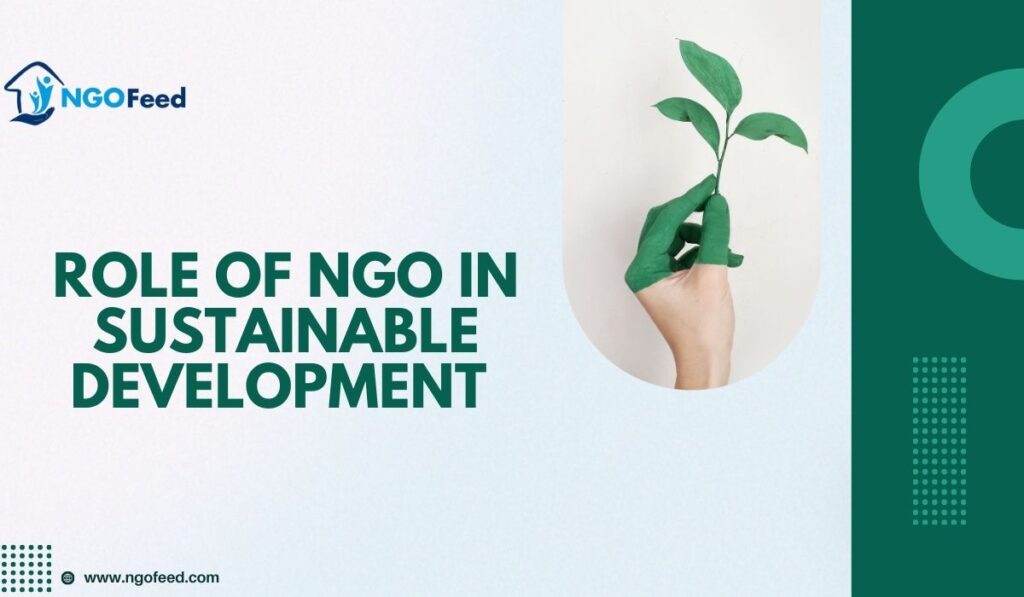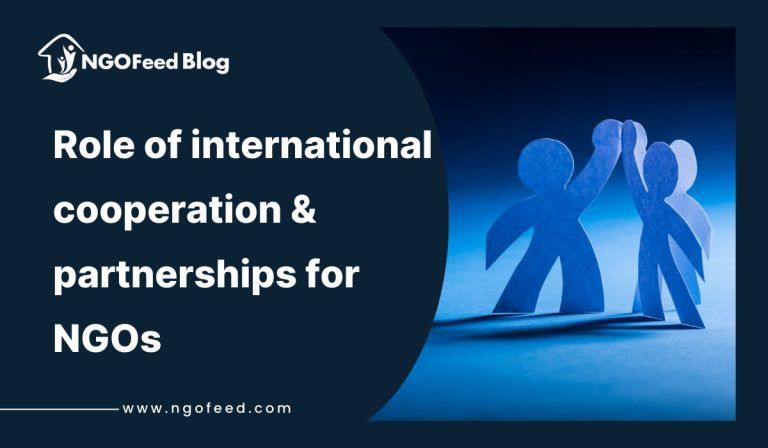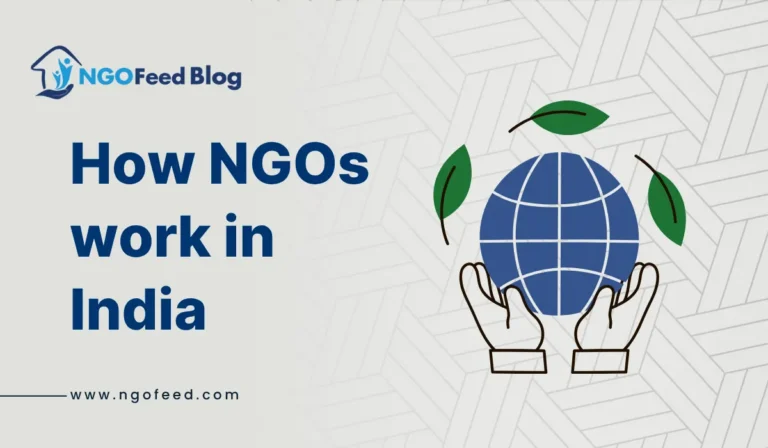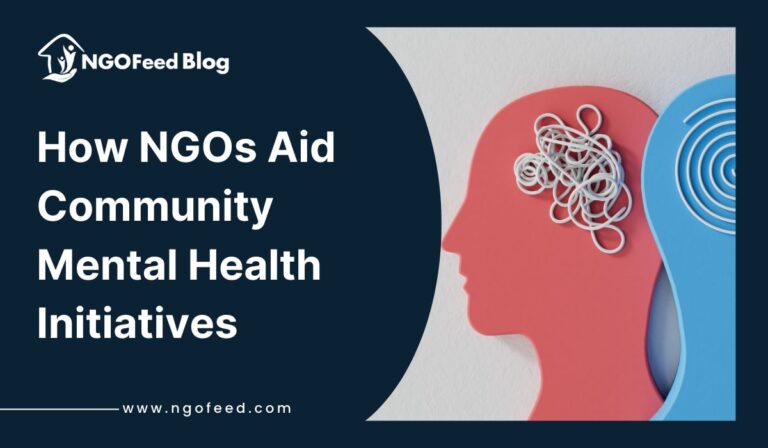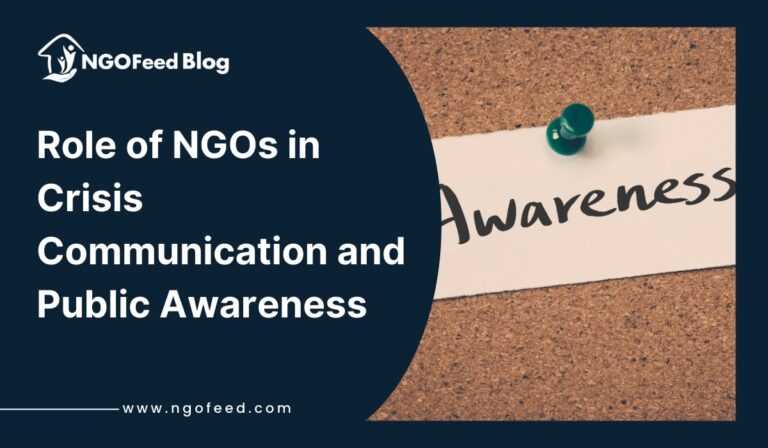Role of NGOs in Sustainable Development: Sustainable development, which includes economic growth, social equity, and environmental protection, represents a global necessity. Although governments and businesses are essential players, Non-Governmental Organizations (NGOs) serve as crucial catalysts for fostering advancements toward a more sustainable future. Their grassroots engagement, advocacy skills, and dedication to social justice render them important allies in the pursuit of the Sustainable Development Goals (SDGs).
Table of Contents
Understanding the Scope of Sustainable Development:
Sustainable development seeks to satisfy the needs of today while ensuring that future generations can fulfil their own requirements. It requires a comprehensive approach, tackling interconnected issues such as poverty, inequality, climate change, and resource exhaustion.
The Multifaceted Role of NGOs in Sustainable Development
NGOs engage in sustainable development through various functions, serving as:
Also Read: Role of NGOs in Street Children
Advocates and Watchdogs:
- NGOs are essential in raising awareness regarding social and environmental issues, holding both governments and corporations responsible for their actions.
- They carry out research, oversee policies, and champion sustainable practices.
- They frequently supply essential data that government entities utilize for decision-making.
- Example: NGOs such as Greenpeace and WWF have been pivotal in advocating for climate action and environmental preservation.
Implementers and Service Providers:
- NGOs execute grassroots initiatives that respond to local needs and foster sustainable methods.
- They deliver critical services in sectors like education, healthcare, water and sanitation, and renewable energy.
- They often operate in isolated or disadvantaged communities where governmental services are scarce.
- Example: NGOs engaged in rural India set up solar-powered water systems, granting access to clean water and encouraging sustainable agriculture.
Also Read: Role of NGOs in Civil Society
Capacity Builders and Educators:
- NGOs empower communities by offering training and education on sustainable methods.
- They enhance local capacity to manage resources, adopt sustainable technologies, and engage in decision-making.
- They spread knowledge and promote changes in behaviours.
- Example: NGOs conducting workshops on organic farming and sustainable land management.
Facilitators and Mediators:
- NGOs function as go-betweens for communities, governments, and businesses, enhancing dialogue and collaboration.
- They assist in resolving disputes related to resource management and development initiatives.
- They encourage participatory methods in decision-making.
- Example: NGOs mediating discussions between local populations and mining corporations to ensure responsible resource retrieval.
Innovators and Researchers:
- NGOs create and test innovative solutions to challenges in sustainable development.
- They perform research on sustainable technologies, policies, and methodologies.
- They share best practices and lessons learned.
- Example: NGOs developing and experimenting with affordable and accessible renewable energy alternatives for rural areas.
Also Read: Role of NGOs in Agriculture
Monitoring and Evaluation:
- NGOs carry out independent assessments and evaluations of development initiatives and policies.
- They furnish valuable data and insights to governments and funding organizations.
- They contribute to ensuring accountability and transparency.
- Example: NGOs monitoring the enforcement of environmental regulations and documenting violations.
Data and Impact:
While assessing the overall influence of NGOs on sustainable development presents challenges, several studies and reports underscore their significant roles:
- Environmental Protection: NGOs have been instrumental in advocating for and executing policies that safeguard forests, biodiversity, and ecosystems. A study by the Stockholm Resilience Centre underscored the crucial involvement of NGOs in shaping global environmental governance.
- Poverty Reduction: NGOs have played a significant role in delivering essential services and fostering sustainable livelihoods within marginalized communities. The World Bank acknowledges the important part NGOs play in efforts to reduce poverty.
- Climate Action: NGOs have been leaders in advocating for climate action, rallying public support, and executing climate-resilient initiatives. A report from the Intergovernmental Panel on Climate Change (IPCC) recognizes the contribution of civil society organizations to climate change adaptation and mitigation.
- SDG Implementation: NGOs serve as essential partners in the pursuit of the SDGs, aiding progress across all 17 goals. The United Nations Sustainable Development Goals Report highlights the significance of collaborations with civil society organizations.
Also Read: Role of NGOs and SHGs in Fisheries
Challenges and Considerations:
Despite their significant contributions, NGOs encounter various challenges:
- Funding Constraints: NGOs frequently depend on limited and uncertain funding, which impacts their ability to sustain their initiatives.
- Coordination Issues: Effective collaboration among NGOs, governments, and other stakeholders is essential, yet it can be difficult.
- Capacity Limitations: Some NGOs may not possess the necessary technical skills or resources to execute high-quality programs.
- Political Constraints: NGOs might experience political limitations or obstacles when advocating for issues.
- Accountability and Transparency: NGOs need to uphold high standards of accountability and transparency to foster trust with stakeholders.
- Sustainability: Projects led by NGOs must ensure their continued operation after the NGO exits.
Also Read: Role of NGOs in Poverty Reduction
Moving Forward:
To enhance the effectiveness of NGOs in sustainable development, the following actions are essential:
- Strengthening Partnerships: Encouraging stronger partnerships between NGOs, governments, businesses, and communities.
- Increasing Funding: Offering sufficient and sustainable financial support for NGO initiatives.
- Capacity Building: Focusing on capacity development for NGOs, especially in developing nations.
- Improving Coordination: Creating effective coordination frameworks to optimize efforts.
- Promoting Transparency: Ensuring transparency and accountability in the operations of NGOs.
- Integrating NGOs into Policy Processes: Involving NGOs in the processes when governments are creating and executing policies.
By acknowledging and bolstering the crucial role of NGOs, we can speed up progress toward a more sustainable and fair future for everyone.

